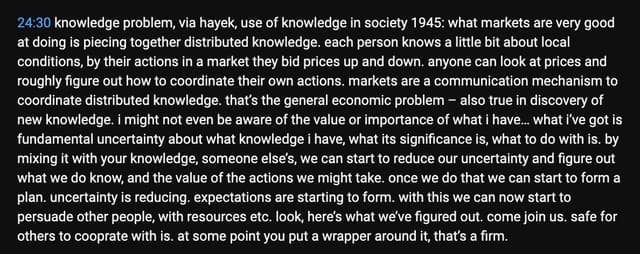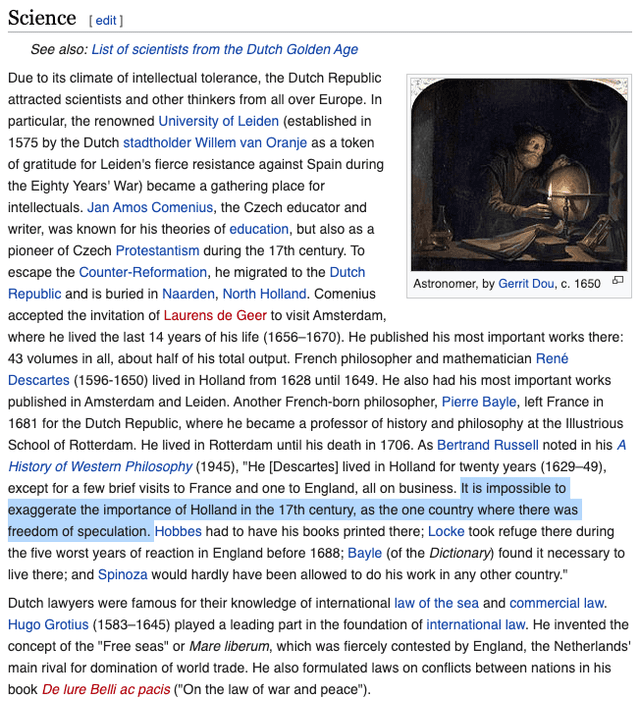🧵 View Thread
🧵 Thread (21 tweets)

in 1997, statistician David Banks wrote an essay titled "The Problem Of Excess Genius" – why are some periods and places so astonishingly more productive than the rest? His primary examples are Athens, Florence and London + another set of minor examples (Paris, New York) https://t.co/28959lVBqx
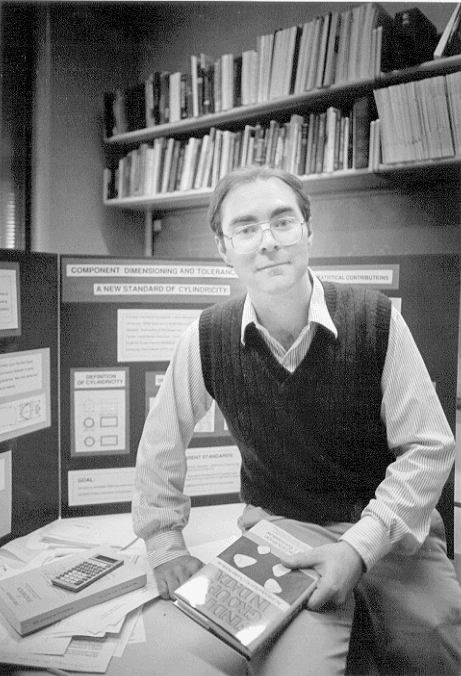
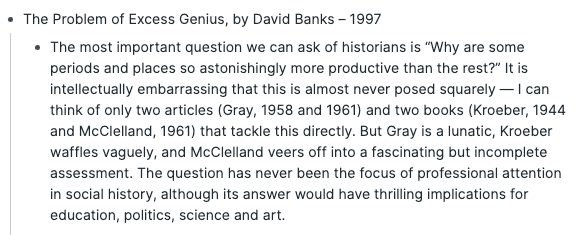
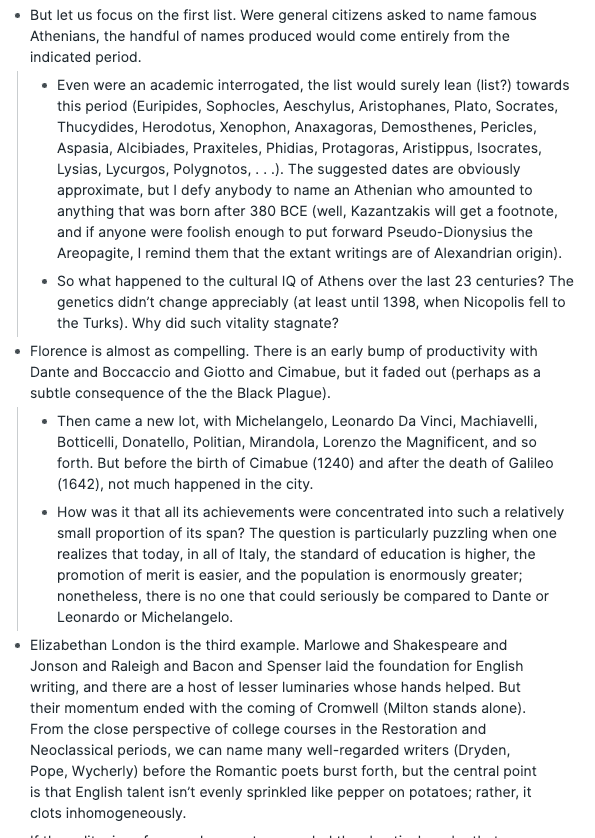

he lists out explanations that historians give in conversations (peace, prosperity, freedom, new paradigms), but argues that they don't quite match up to the actual history https://t.co/ZNVL7odkQe
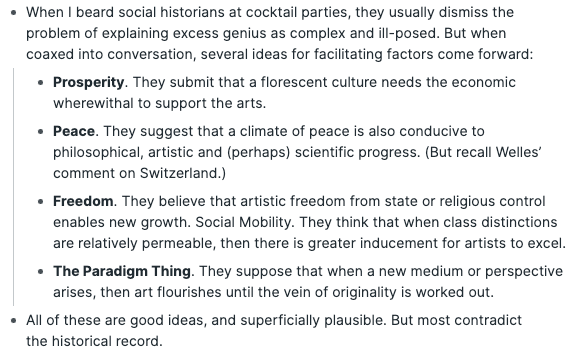

his own observations: - preceding military victory - high rates of social intercourse - education (the role tutors in particular) https://t.co/j34P9mBnRX
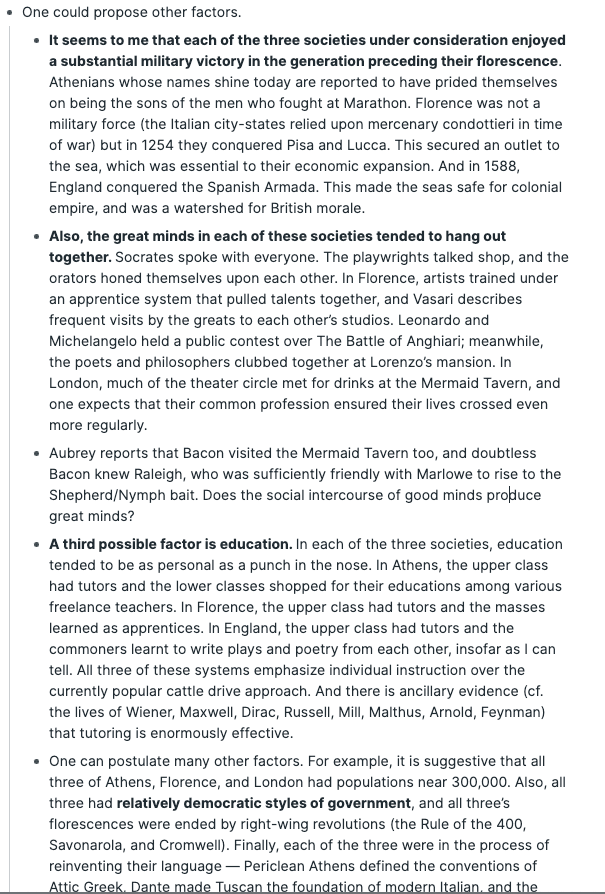

sifting through my other notes, too much work to attribute the wide-range of sources in tweets for now: - diversity, tolerance - openness, experimentation https://t.co/tdbm3kIj9P
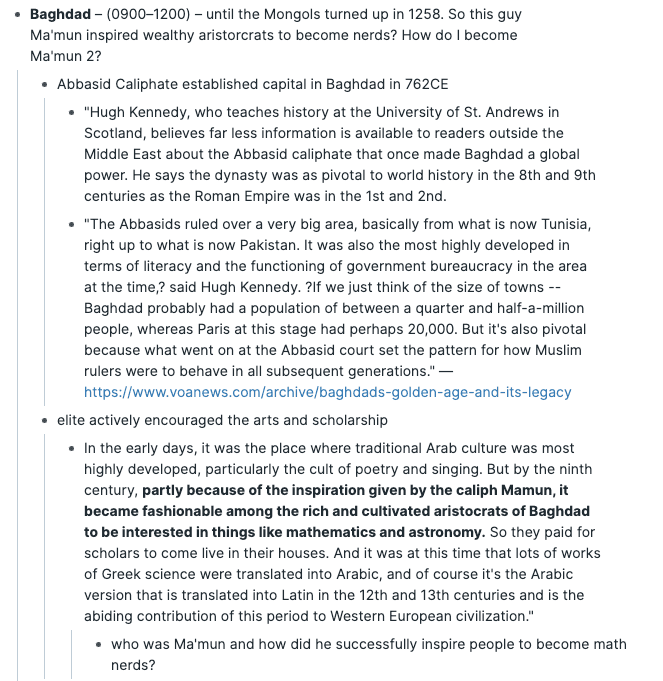

dutch golden age, freedom of speculation https://t.co/f0f7HKFx8K

kevin kelly scenius post, 2008 - status games within the scene - high social intercourse - individual triumphs shared by the scene - tolerance of transgression https://t.co/kmYMRSkh4J
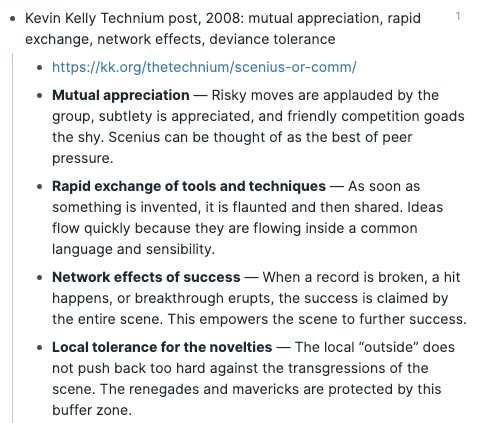

The Cori Laboratory (5 Nobels): - full-stack attention to all parts of the research process - high social intercourse - presentation requirement – forces practice, refinement - high openness, disregard for personal identity - prior training not required https://t.co/wBtnbGFuOt

high social intercourse https://t.co/ruLRTnITB2

Max Planck won the Physics Nobel for his discovery of energy quanta he had literal nerd house parties!!! "The Planck home became a social and cultural center. Numerous well-known scienttsts – Einstein, Hahn, Meitner were frequent visitors". They'd play music together https://t.co/2ZgrrOmlCk
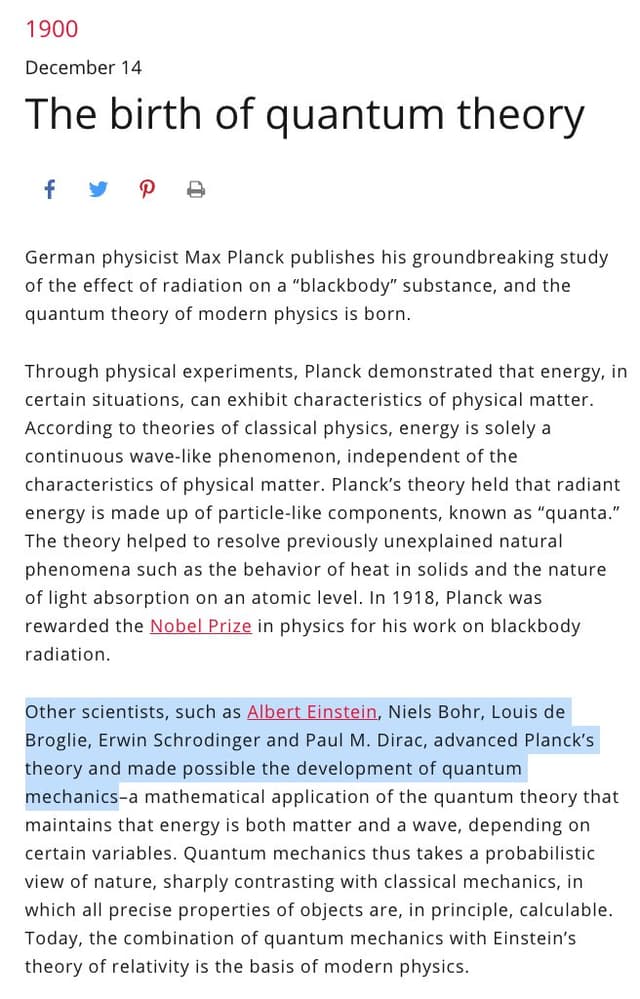
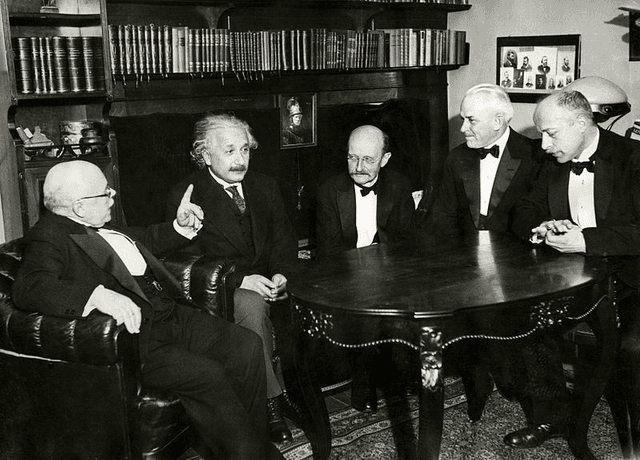
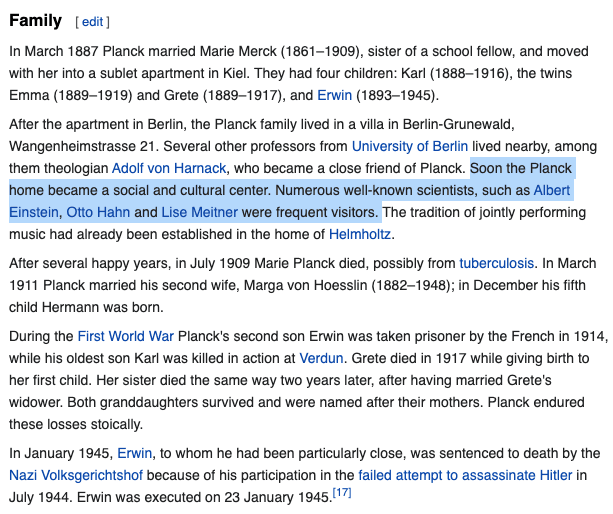

high social intercourse https://t.co/iQOJXPTkxo

high openness, high social intercourse https://t.co/JGrDzL5lFP

According to Plutarch, Pericles' lover Aspasia's house in Athens was an intellectual centre, attracting nerds like Socrates she had been alleged to have been a hetaira, a sort of highly-educated geisha-esque elite courtesan type? complicated, scholars argue about it https://t.co/yLfNrOgFzZ
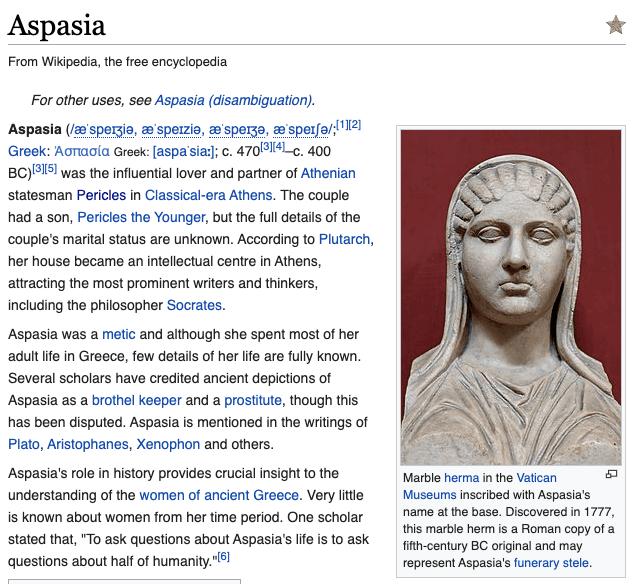


I think it's worth taking the time to elaborate on "high trust + high openness scenes of exploration" I should probably start by pointing out that, first of all, the first dominos meme I made was "how things go bad" (L). "if we play our cards right" (R) was meant as a contrast https://t.co/SA4nGJHL51

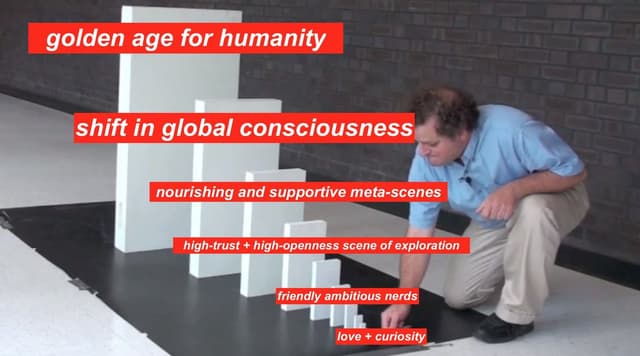

@visakanv > preceding military victory https://t.co/Km55utN2Y5

@Ben_Reinhardt hahahaha he has a very distinctive style quite different than mine, and I will be assembling my own sort of research review of everything everybody has ever written on this subject I do have them in my roam notes if you wanna spelunk around https://t.co/PEZHBwaL44

@DanielCJonas I wonder if you could piece together anything you've read the Durants say about the answer to this question? maybe by QT-ing existing tweets? I will read all your threads once i'm done with my book in a couple of days, but asking in case this is an easy task for you

@visakanv Best explanation I've heard for this is the idea of an 'innovation commons'. Spoke to @profjasonpotts a little while back, author of 'Innovation Commons'. https://t.co/3jIS14eumo https://t.co/QM2a1BxdRJ

@samhbarton loved it for future ref: https://t.co/5O2Q0byvpM

this video has been on my todo list for 2 years lol finally dusted it off and watched it, here are my notes. a lot of stuff the people around here talk about, my favorite bit was at 24:30 where prof. potts goes into a very eloquent riff about how scenes/commons reduce uncertainty https://t.co/zzX2MEdUtH
